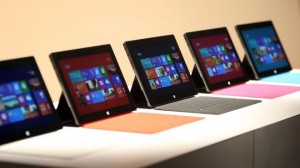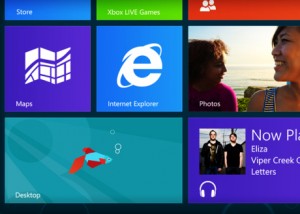
Is Windows Officially Shattered?
According to various news stories published this week, Microsoft will reverse course on their Windows 8 strategy during the next major update to the operating system. User backlash has been so strong against the changes introduced in Windows 8 (as record-low sales figures seem to support) that analysts expect that the codename “Blue” update due by the end of the year may include a return of the “Start Menu” as well as a way for users to completely bypass the “tiled” interface that is the defining characteristic of the Windows 8 interface.
Many are calling this the biggest commercial failure since New Coke. As I have described in my previous articles about Windows 8, Microsoft needed to hit a home run with Windows 8. Unfortunately, it seems they have struck out and Windows 8 now has a nasty stigma associated with it, just like Windows Vista. The difference is that Microsoft had time to recover from their previous debacles. The mobile device market dominated by Apple and Google is moving much too fast for Microsoft. I don’t believe Windows 8 will be able to shake the “New Coke” label in time to seriously compete in The New World of Technology.
As before, this is simply another sign for small business owners, professionals, and technology-concerned individuals to plan their migration away from a Microsoft-dependent environment. The writing is all over the wall here. There’s no use in crying over the new “New Coke”.
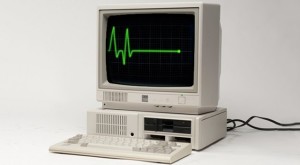
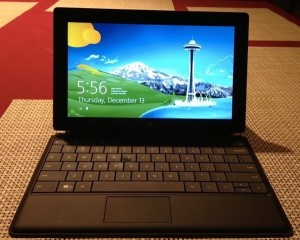 Yes, I’m enough of a geek that on first weekend the Microsoft Surface was introduced, I found out which local mall had the Surface on display and spent some time testing it. At the time, my impression was that the interface was far too complicated for a tablet and that while Microsoft trumpets the keyboard as an optional accessory, the reality is that it is all about the keyboard. The Surface without a keyboard is like owning a laptop, well, without a keyboard. The Windows RT operating system feels like it assumes you’ll be using the keyboard and the actual shape of the Surface is too long to hold comfortably in portrait mode. To add insult to injury, the first Surface model I was playing with had a problem bringing up the touchscreen keyboard when I disconnected the keyboard cover. The Microsoft representative was baffled why it wouldn’t work and claimed “somebody must have uninstalled the keyboard driver”. Wow. If anyone still doesn’t understand why the iPad is enormously popular, the fact that the iPad will never have a problem like “uninstalling a keyboard driver” should be all the proof required.
Yes, I’m enough of a geek that on first weekend the Microsoft Surface was introduced, I found out which local mall had the Surface on display and spent some time testing it. At the time, my impression was that the interface was far too complicated for a tablet and that while Microsoft trumpets the keyboard as an optional accessory, the reality is that it is all about the keyboard. The Surface without a keyboard is like owning a laptop, well, without a keyboard. The Windows RT operating system feels like it assumes you’ll be using the keyboard and the actual shape of the Surface is too long to hold comfortably in portrait mode. To add insult to injury, the first Surface model I was playing with had a problem bringing up the touchscreen keyboard when I disconnected the keyboard cover. The Microsoft representative was baffled why it wouldn’t work and claimed “somebody must have uninstalled the keyboard driver”. Wow. If anyone still doesn’t understand why the iPad is enormously popular, the fact that the iPad will never have a problem like “uninstalling a keyboard driver” should be all the proof required.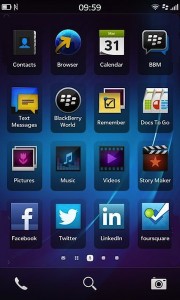 The company formerly known as RIM, whose claim to fame is the BlackBerry smartphone line,
The company formerly known as RIM, whose claim to fame is the BlackBerry smartphone line, 